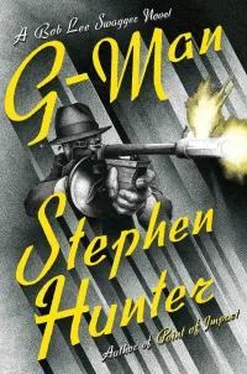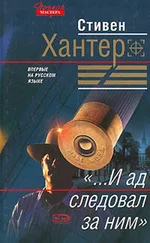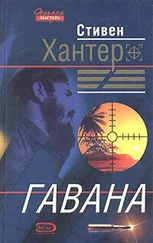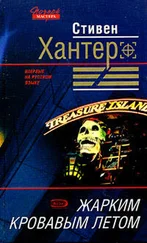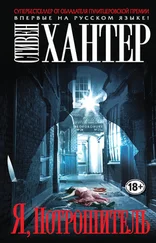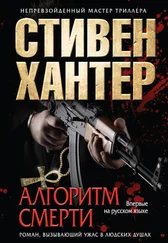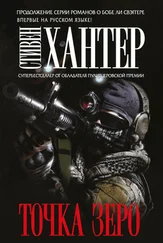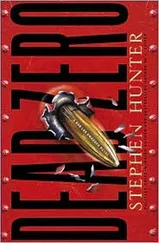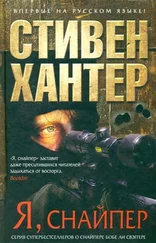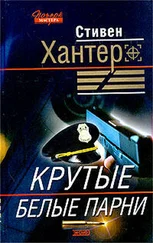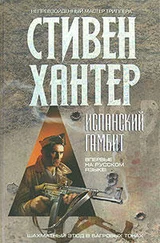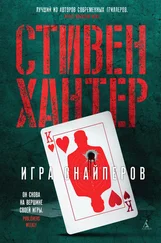Стивен Хантер - G-Man
Здесь есть возможность читать онлайн «Стивен Хантер - G-Man» весь текст электронной книги совершенно бесплатно (целиком полную версию без сокращений). В некоторых случаях можно слушать аудио, скачать через торрент в формате fb2 и присутствует краткое содержание. Жанр: Старинная литература, на английском языке. Описание произведения, (предисловие) а так же отзывы посетителей доступны на портале библиотеки ЛибКат.
- Название:G-Man
- Автор:
- Жанр:
- Год:неизвестен
- ISBN:нет данных
- Рейтинг книги:3 / 5. Голосов: 1
-
Избранное:Добавить в избранное
- Отзывы:
-
Ваша оценка:
- 60
- 1
- 2
- 3
- 4
- 5
G-Man: краткое содержание, описание и аннотация
Предлагаем к чтению аннотацию, описание, краткое содержание или предисловие (зависит от того, что написал сам автор книги «G-Man»). Если вы не нашли необходимую информацию о книге — напишите в комментариях, мы постараемся отыскать её.
G-Man — читать онлайн бесплатно полную книгу (весь текст) целиком
Ниже представлен текст книги, разбитый по страницам. Система сохранения места последней прочитанной страницы, позволяет с удобством читать онлайн бесплатно книгу «G-Man», без необходимости каждый раз заново искать на чём Вы остановились. Поставьте закладку, и сможете в любой момент перейти на страницу, на которой закончили чтение.
Интервал:
Закладка:
“So, I guess that you’re him?”
“Him?” asked Charles.
“You know, the cowboy gunfighter who plugged Johnny. Your outfit wants Mel to be the face of it, but I figure it had to be someone more cowboy than Mel, who’s a little uptown for that kind of work.”
“Sir, the policy is not to release details. I was there, I did my job as it came up, and that’s all I can say.”
“They wouldn’t have put you there unless you’d been there a lot of times. It’s the kind of game where experience counts, right? A lot of time behind a pistol. See it, hit it, bury it?”
He had an eager aggression that almost caused his face to shine.
“It’s okay if you tell me,” he said. “Off the record means off the record.”
“Until it don’t,” said Charles.
“No, no, when I say it, I mean it. Ask around, you’ll see that I keep my word. We’re not the Trib , or the Sun or the Times . We run a class outfit and shoot square all the way.”
“Well, I’m not the type that talks things up. I just did what was required by circumstance, and that’s all I’d be comfortable saying, record or no.”
“Okay. But I have heard you got to him first when he went down. You heard what he said.”
“I did. Truth is, it didn’t make much sense.”
“Can you tell me?”
“Something about the way he was dressed.”
“I guess he thought he was a dude. You remember the exact words? Something I can put in the paper?”
“I’m thinking it was”—what was it? — “something about wanting to be ‘dressed right for people.’”
“Was it a joke?”
“He had a hole the size of a tomato in his face. His brains were on the sidewalk. I don’t think he was trying to be funny.”
“You know it, I know it, but the rubes don’t know it. Say, pal, you’re okay. I’m thinking something like, But I ain’t dressed for church. Or, I’m not even wearing a tie!”
“He was wearing a tie. No jacket, though.”
“Then, I’m not dressed for this.”
“It might have been something like that, I suppose. But there was another element. I’m not dressed for folks, maybe. Or, I’m not dressed for company.”
“So if I say his last words are ‘I’m not dressed for company,’ you’re not going to call me a liar?”
“I’m not going to call you anything. I’m not going to call you.”
“That’s all I want. You just got me a bonus. ‘I’m not dressed for company’—swell, the rubes think Hollywood writes everything, they want a snappy end line. Here, let me give you my card, it’s got my number at the Examiner , and if there’s anything I can do for the real hero of the day, you let me know. See, I know stuff, I know folks, I do favors and find things out. I always know the real story behind the story I print and I know the story I print is basically bullshit. Maybe I can do you a favor someday.”
“Sure, and some day pigs will star in movies.”
“Good one,” said Jessup.
Charles slipped the card into his pocket and watched the fellow slip away, happy with his little fake prize.
Charles had another nightmare that night, a particularly bad one. The war; men jostling and climbing to meet the bristling fire; gray, muttering faces, masked with fear — Jesus, when will it stop? — and, in the aftermath, the men who’d died, the paleness of their bodies against the mud, the reaching white limbs, the results of ballistics against the tenderness of flesh, the smell of shit that occluded the Western Front from start to finish. He woke, blinking and sweaty, glad at least he hadn’t screamed. He was okay. But it was mid-morning and there was no point in trying to get back to sleep. He rose, showered, dressed, slipped the .45 in the shoulder holster, and left. Not much business at the diner, and he had a nice breakfast of eggs, bacon, coffee, juice. That would keep him going until a late dinner.
He got in about 11:30 and noticed it right away. It was a note from Elaine: “Call your Uncle Phil as soon as possible.”
CHAPTER 41
McLEAN,VIRGINIA
The present
“Okay,” said Bob, “you got me all excited.”
“This one is big. I think you’ll be pleased.”
They were in the study, sometime before dinner, and Bob had just arrived after a hasty call from Nick.
“I got another call from History itself,” Nick explained.
Swagger knew that was the senior historian, who could find anything in the vast array of frayed papers stuffed into filing cabinets and cardboard boxes that occupied the entire floor of the Hoover subbasement, as he had with the Winchell recording.
“He was on another project, but he came across this and saw immediately how it might fit in for us.”
Bob took the document, and looked at it closely. Unusually, it wasn’t a photocopy but the real thing, typed on four pieces of real paper, each secured in a plastic sleeve to protect it from the elements, human touch especially.
“I was running late; he was running early,” Nick explained. “He had a speech to give. Photocopying was backed up. He said, just take this one, but have it back on Monday. And be careful. Otherwise, no significance. We just can’t make a paper airplane out of it.”
It was a closely typed report of some sort, whose typeface, nomenclature, official seal, and catalog number all accorded with Bureau paperwork protocols as Swagger had encountered them. The title read
RECOMMENDATIONS FOR HANDGUN POLICY REVISION
Below that, it said “Submitted, June 18, 1934, by REDACTED.”
Scanning the brief accumulation of pages, he saw also that at the bottom right of each page it bore the notation “REDACTED/EPD.”
“EPD typed it,” said Nick, “we know her. That’s our favorite gal, Elaine Donovan, the hardest-working gal in showbiz. She also typed the thing from South Bend, or at least the original pages.”
Bob began reading.
It was, clearly, in a voice of a man knowledgeable in handgun fighting, physics, mechanics, maintenance, and training; clearly, a man who had won more than a few gunfights. His suggestions also seemed radical for the time. He didn’t believe in the concept of the static range, where agents stood still in rigid target positions and fired one-handed at silhouette targets twenty-five yards away. Instead, he recommended a “dynamic action” course of fire, in which agents would draw from concealment, move, engage sculptural targets from concealed positions at unusual angles, sometimes firing down, sometimes firing up, sometimes firing at movers, sometimes at chargers. They would be encouraged to fire two-handed, instead of the conventional one, to always use their sights, and to load under time pressures. It was just like the latest SEAL or SWAT doctrine. He encouraged high-hip carry, cocked-and-locked .45 automatics or Smith & Wesson Heavy Duty .38s on .44 frames, with much practice on draw and first-shot placement, followed by rapid movement toward cover or, if cover wasn’t available, to evade return fire. For raid or arrest teams, he urged special training in maneuvering off a base of fire, based on army raiding techniques; use of short-barreled fully automatic weapons, such as Thompsons, with the stocks removed, or .351 Winchesters or .35 Remington semi-autos, tweaked to go full rat-a-tat-tat. He believed in a sniper component as part of deployment, and took it further by recommending establishing a sniper school, for he felt that the precise long-range shot was a useful tool in the law enforcement repertoire. He recommended the heavy-caliber bullet for both automatic or revolver, in the year before the .357 Magnum was developed and adopted.
“It sounds Swagger, doesn’t it?” said Nick. “There may have been other fellows around who had the experience and had thought rigorously about the issue as well, but I don’t think any of them worked for the FBI at the time.”
Читать дальшеИнтервал:
Закладка:
Похожие книги на «G-Man»
Представляем Вашему вниманию похожие книги на «G-Man» списком для выбора. Мы отобрали схожую по названию и смыслу литературу в надежде предоставить читателям больше вариантов отыскать новые, интересные, ещё непрочитанные произведения.
Обсуждение, отзывы о книге «G-Man» и просто собственные мнения читателей. Оставьте ваши комментарии, напишите, что Вы думаете о произведении, его смысле или главных героях. Укажите что конкретно понравилось, а что нет, и почему Вы так считаете.
